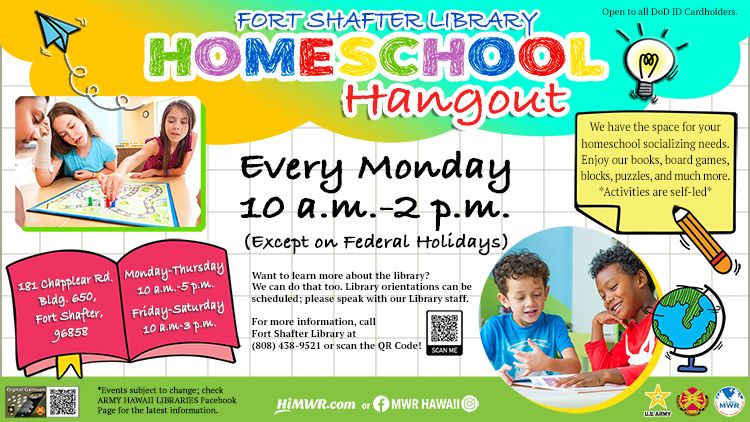- Deployment Support to Soldiers and units preparing to deploy or returning from a deployment. Information and referral services assist Soldiers and Family members dealing with deployment and redeployment questions, concerns, and challenges. Services can be tailored to assist commanders in meeting the deployment and redeployment needs of their SFRG. Commanders also have the virtual SFRG (vSFRG) as a tool to communicate with their SFRG membership in a secure online environment, especially during deployment.
- Family Readiness Training for command teams, Command Family Readiness Representatives, and SFRG volunteers.
- Emergency Family Assistance, provided when disaster strikes an Army community and accessed through multiple methods:
- Through an ADPAAS electronic assessment, Soldiers and Families can identify needs, which will be assigned to the closest ACS ADPAAS case manager
- Through the Emergency Family Assistance Center (EFAC), a garrison-level, one-stop location for Soldiers, Civilians, and Family members to access needed recovery services
- During noncombatant evacuation and repatriation operations for personnel in OCONUS locations
- SFRG Class Calendar 2026
-


To view/print the PDF version, click HERE
- Casualty Response (CARE) Team
-
The Casualty Response (CARE) Team is a group of volunteers who provide practical assistance and emotional support to a Family on a short-term basis so the Family can continue to function while dealing with a traumatic event. The actual support provided depends on Family needs and command guidance, but can include: call support, home care assistance, childcare support, meal support, transportation, assistance to visiting family and other family support.
If you know someone who is possibly in need of a CARE Team: contact the Unit Commander or in the Commander’s absence, Rear Detachment Commander.
To schedule CARE Team Training for your unit: have your Battalion/Brigade Command Family Readiness Representative (CFRR) contact us at (808) 787-4227.
U.S. Army Care Team Handbook: Provides guidance for Care Team Volunteer to understand the Care Team's role and to learn how to support Families effectively.
- Soldier & Family Readiness Groups (SFRGs)
-
5A Soldier & Family Readiness Group is a command sponsored organization of family members, volunteers, Soldiers, and civilian employees belonging to a unit, that together provide an avenue of mutual support and assistance and a network of communications among the Soldiers, Family members, the chain of command, and community resources.
Click HERE for the SFRG FY2026 Training Schedule.
SFRG Classes
SFRG Smartbook: For Hawaii Use Only
Command Teams are designed to assist command teams with their responsibilities and roles by creating a Family Readiness Plan, distinguishing between Appropriated and SFRG informal funds.
Command Family Readiness Representatives (CFRR): Formerly known as Soldier & Family Readiness Liaison (SFRL) help to identify, define and understand SFRG operational components. Provide resources for volunteers and the membership, methods of communicating with SFRG membership, and how to execute their role within the SFRG.
SFRG Funds Custodian is designed for SFRG Leaders, Funds Custodians, and Command representatives to gain a clear understanding of the various funds available and the types of purchases that can be made with each fund. It also clearly defines the roles and responsibilities of the Funds Custodian and Alternate.
SFRG Key Contact is designed to provide training in Key Contact duties, communicating with Family members, dispelling rumors, and handling crisis calls. It also shows Key Contacts how they fit into a successful SFRG.
updated: 11/18/2025
- U.S. Service Coordinator (USC) Request Form for ACS Educational Classes
-
Click HERE to download the form.
Please submit the request to the Army Community Service, Unit Service Coordinator 2-4 weeks prior for processing. To submit this request or ask questions, please call 808-787-4227 or email us at usarmy.schofield.id-pacific.mbx.acs-mdsso@army.mil.
An ACS representative will contact you upon receipt of this request.
- Emergency Family Assistance Center (EFAC)
-
The purpose of an EFAC is to provide a coordinated humanitarian response to catastrophic events affecting the military community. Upon activation, the EFAC will provide support services and emergency assistance to Soldiers, Family Members, and DA Civilians during the Response and Recovery Phases. The EFAC will promote short-term recovery, long-term recovery, and the return to a stable environment and mission-ready status following major incidents.
- NEO/Repatriation
-
We assist the State Department to help those who have been displaced after international and national emergencies and disasters.
For more information, contact your local Army Community Service and ask for the MDSSO program.
- Frequently Asked Questions
-
What is an SFRG?
A Soldier/Family Readiness Group is a command sponsored organization of family members, volunteers, Soldiers and civilian employees belonging to a unit. Together provide an avenue of mutual support, assistance, and a network of communications among the family members, the chain of command, and community resources.
What is the Unit Commander's role in the SFRG?
The Army Command Policy 600-20, AR 608-1 & OPORD 25-549 provide specific guidance for the commander.
What is the Role of the Command Family Readiness Representative (CFRR)?
The CFRR provides a link between the Chain of Command, SFRG members, and community resources.
CFRRs assist the command by:
- Key integrator between command and Soldiers/Families
- Help Commands maintain active SFRGs.
- Maintain current email/communication rosters.
- Establish and execute communication plans/strategies IAW Commander’s objectives.
- Inform Commanders of known Soldier and Family issues.
- Coordinate and communicate resilience events. (Post sponsored or unit sponsored).
- Help SFRGs establish chains of concerns to pass information from the CFRR to SFRG members. Serve as the link between Soldiers, Civilians, Family members, and Command team.
- Support Better Opportunities for Single Soldiers (BOSS) activities and disseminate information about upcoming activities.
How do I register and log my hours as a volunteer?
Visit the Army Volunteer Corp page.
- Available Resources
-
ACS "I Need Assistance With" Directory
SFRG Smartbook: For Hawaii Use Only
Army Family Team Building: Training for military Families on the Army, leadership and personal development.
Army OneSource: This resourceful website provides information about deployment, reunion, finances, Family, children's workbooks and SFRG. The download center allows you to research and download information that is important for you.
Fundraising Tools: Find regulations, procedures, forms and POC to start fundraising in the USAG-HI installation.
Military OneSource: Articles on everything from deployments to childrearing to healthcare issues and more. In addition, there are 24 hour consultants who can research questions and refer to appropriate agencies for specific problems.
U.S. Army Care Team Handbook: Provides guidance for Care Team Volunteer to understand the Care Team's role and to learn how to support Families effectively.
HI-TAMC, Food Handlers Course: Food Handler's training promotes food sanitation, best practices and awareness. Directions to receive a certificate is provided at the end of the training. If you have any questions or concerns with the training please contact TAMC Environmental Health Section NCOIC of EH - (808) 433-6694.
Deployment Cycle Resource Guide: For service members and Families to be familiar with support agencies during all phases of deployments.
Updated: 08/19/2025
- Email Us
Deployment isn’t easy. Mobilization, Deployment and Stability and Support Operations (MD&SSO) helps make it as smooth as possible—for units, Soldiers, and Families.
MD&SSO provides training and publications to help commanders, Soldiers, and Families navigate the challenges of mobilization and deployment. We also have resources for rear detachment cadre and Soldier and Family Readiness Group (SFRG) leaders.
We assist the chain of command by empowering SFRG leadership and volunteers, providing them with robust training and resources to maintain a successful and effective SFRG. In addition, Family Readiness Support Assistants (FRSAs) provide administrative and logistical support to commanders, rear detachment commanders, and SFRG leaders.
MD&SSO also assists during Noncombatant Evacuation and Repatriation Operations. During emergencies, the Army Disaster Personnel Accountability and Assessment System (ADPAAS) helps gain accountability, assess Family needs, and coordinate assistance.
The MD&SSO Program provides:
Other Deployment Readiness Resources
(Government Links)
Plan My Deployment. Military OneSource’s Plan My Deployment provides tips, resources, and articles to help prepare for all phases of the deployment. Click here to access Plan My Deployment.
Soldier and Family Readiness Groups (SFRGs). SFRGs and virtual SFRGs (vSFRGs) offer Families official and accurate command information, connect Soldiers and Families to the chain of command, provide a network of mutual support, and connect SFRG members to on/off-post community resources.
Social Media. Social media can be a powerful tool to inform, influence, and engage Soldiers and Families. Click here to access the Army's Social Media site.
Ready Army. Ready Army is the Army’s proactive campaign to increase the resilience of the Army community and enhance its readiness by taking stock of and preparing for relevant hazards. Click here to access Ready Army
(Non-Government Links, No Endorsement Implied)
Yellow Ribbon Reintegration Program (YRRP). YRRP is a DoD-wide effort to promote the well-being of National Guard and reserve members, as well as their Families and communities, by connecting them with resources throughout the phases of deployment. Click here to access YRRP.

